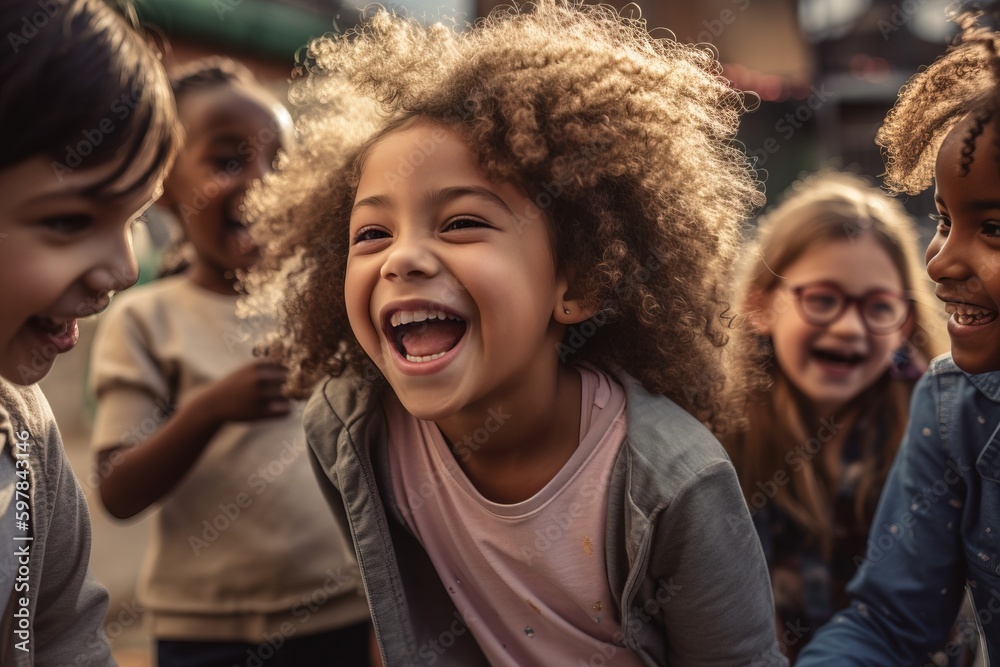The Art of Celebration: Finding Joy and Meaning in Shared Moments

Celebration is a fundamental human experience. It’s woven into the fabric of our lives, marking milestones, acknowledging achievements, and simply enjoying the present moment with loved ones. From intimate family gatherings to grand public spectacles, celebrations offer a powerful opportunity to connect, reflect, and rejuvenate. But what truly makes a celebration meaningful? And how can we cultivate a deeper appreciation for the art of celebration in our lives?
The Essence of Celebration:
At its core, celebration is about recognizing and appreciating something significant. This significance can stem from a variety of sources:
- Achievements: Graduations, promotions, successful projects, and personal triumphs all warrant recognition. Celebrating achievements reinforces positive behavior, boosts morale, and motivates us to strive for further success.
- Milestones: Birthdays, anniversaries, weddings, and retirements mark significant passages in life. These celebrations allow us to reflect on the journey, acknowledge growth, and look forward to the future.
- Cultural and Religious Traditions: Holidays like Christmas, Diwali, Eid, and Thanksgiving connect us to our heritage, values, and communities. These celebrations provide a sense of belonging and shared identity.
- Simple Joys: Sometimes, the most meaningful celebrations are the spontaneous ones – a beautiful sunset, a shared laughter, a delicious meal. These moments remind us to appreciate the everyday beauty and simple pleasures of life.
The Benefits of Celebration:

Beyond the immediate joy and excitement, celebrations offer a multitude of benefits that contribute to our overall well-being:
- Strengthening Relationships: Celebrations provide opportunities to connect with loved ones, share experiences, and create lasting memories. They foster a sense of belonging and strengthen the bonds that tie us together.
- Boosting Morale and Motivation: Recognizing achievements and milestones boosts morale and motivates us to continue striving for excellence. It reinforces positive behavior and creates a sense of accomplishment.
- Reducing Stress and Promoting Relaxation: Celebrations offer a welcome respite from the stresses of daily life. They provide a chance to unwind, relax, and enjoy the company of loved ones.
- Cultivating Gratitude: Celebrating the good things in our lives helps us to cultivate gratitude and appreciate the blessings we have. It shifts our focus from what we lack to what we possess, fostering a more positive outlook.
- Building Community: Public celebrations bring communities together, fostering a sense of shared identity and pride. They provide opportunities for people from diverse backgrounds to connect and celebrate their common values.
- Creating Lasting Memories: Celebrations create lasting memories that we can cherish for years to come. These memories provide comfort, joy, and a sense of connection to the past.
Elements of a Meaningful Celebration:
While the specific elements of a celebration vary depending on the occasion and cultural context, certain core principles contribute to its overall meaning and impact:
- Intentionality: A meaningful celebration is intentional, not just a perfunctory obligation. It involves conscious planning and effort to create a special and memorable experience.
- Authenticity: The celebration should reflect the values and preferences of the people involved. It should be genuine and heartfelt, rather than forced or artificial.
- Connection: The most meaningful celebrations are those that foster connection and communication. They provide opportunities for people to share stories, express emotions, and strengthen their relationships.
- Presence: Being fully present in the moment is crucial for experiencing the joy and meaning of a celebration. Putting away distractions and focusing on the people and experiences around us allows us to fully appreciate the occasion.
- Gratitude: Expressing gratitude for the blessings we have and the people we share them with enhances the meaning and impact of a celebration.
- Personalization: Tailoring the celebration to the specific occasion and the people involved makes it more meaningful and memorable. This can involve incorporating personal touches, such as handmade decorations, personalized gifts, or shared memories.
- Tradition and Innovation: Striking a balance between tradition and innovation can create a celebration that is both meaningful and engaging. Honoring traditional customs while incorporating new ideas and elements can make the celebration feel fresh and relevant.
Beyond the Grand Gesture: Celebrating the Everyday:
While grand celebrations have their place, it’s equally important to cultivate a spirit of celebration in our everyday lives. This involves recognizing and appreciating the small joys and simple pleasures that often go unnoticed.
- Mindful Moments: Taking a few moments each day to appreciate the beauty of nature, the warmth of a hug, or the taste of a delicious meal can cultivate a sense of gratitude and joy.
- Acts of Kindness: Performing acts of kindness for others can bring joy to both the giver and the receiver. This can be as simple as offering a compliment, helping a neighbor, or volunteering time to a worthy cause.
- Creative Expression: Engaging in creative activities, such as painting, writing, or playing music, can be a form of celebration in itself. It allows us to express our emotions, explore our creativity, and connect with our inner selves.
- Quality Time: Spending quality time with loved ones, even if it’s just for a few minutes each day, can strengthen relationships and create lasting memories.
- Self-Care: Taking care of our physical and mental well-being is essential for cultivating a spirit of celebration. This can involve activities such as exercise, meditation, or spending time in nature.
Overcoming Barriers to Celebration:
Sometimes, external factors or internal beliefs can hinder our ability to celebrate. Recognizing and addressing these barriers is crucial for cultivating a more celebratory mindset.
- Busy Schedules: In today’s fast-paced world, it can be challenging to find time for celebration. Prioritizing time for connection and enjoyment is essential.
- Financial Constraints: Celebrations don’t have to be expensive. Simple, heartfelt gestures can be just as meaningful as elaborate parties.
- Negative Mindset: A negative mindset can make it difficult to appreciate the good things in life. Cultivating a more positive outlook through gratitude practices and mindfulness can help.
- Fear of Vulnerability: Sharing our emotions and celebrating with others can feel vulnerable. Embracing vulnerability and allowing ourselves to be seen can deepen our connections and enhance the joy of celebration.
- Perfectionism: Striving for perfection can take the joy out of celebration. Learning to let go of control and embrace imperfections can make the experience more enjoyable.
Conclusion:
Celebration is more than just a party or a special occasion; it’s a fundamental human need. It’s a way to connect with others, express gratitude, and find joy in the present moment. By cultivating a spirit of celebration in our lives, we can enhance our well-being, strengthen our relationships, and create lasting memories. Whether it’s a grand milestone or a simple everyday pleasure, taking the time to recognize and appreciate the good things in our lives can make all the difference. Embrace the art of celebration, and discover the joy and meaning it brings.
FAQ – Frequently Asked Questions about Celebration:
Q1: Why is celebration important?
A: Celebration is important because it strengthens relationships, boosts morale, reduces stress, cultivates gratitude, builds community, and creates lasting memories. It allows us to connect with others, appreciate the good things in our lives, and find joy in the present moment.
Q2: What are some examples of things we can celebrate?
A: We can celebrate achievements, milestones, cultural and religious traditions, and even simple joys like a beautiful sunset or a shared laugh. Anything that brings us joy and connection can be a reason to celebrate.
Q3: How can I make a celebration more meaningful?
A: Make your celebrations more meaningful by being intentional, authentic, and present. Focus on connecting with others, expressing gratitude, and personalizing the celebration to reflect the occasion and the people involved.
Q4: Does celebration have to be expensive?
A: No, celebration doesn’t have to be expensive. Simple, heartfelt gestures can be just as meaningful as elaborate parties. Focus on creating a special and memorable experience, rather than spending a lot of money.
Q5: How can I celebrate the everyday?
A: Celebrate the everyday by practicing mindfulness, performing acts of kindness, engaging in creative expression, spending quality time with loved ones, and taking care of your physical and mental well-being.
Q6: What if I don’t feel like celebrating?
A: It’s okay not to feel like celebrating sometimes. Allow yourself to feel your emotions, but also try to find small ways to appreciate the good things in your life. Even a small act of self-care can be a form of celebration.
Q7: How can I overcome barriers to celebration?
A: Overcome barriers to celebration by prioritizing time for connection and enjoyment, reframing your mindset, embracing vulnerability, and letting go of perfectionism.
Q8: How can I encourage others to celebrate more?
A: Encourage others to celebrate more by leading by example, sharing your own celebrations with them, and reminding them of the importance of gratitude and connection.
Q9: Is it okay to celebrate alone?
A: Absolutely! Celebrating alone can be a powerful way to connect with yourself, reflect on your accomplishments, and appreciate your own company.
Q10: What’s the difference between celebration and indulgence?
A: Celebration is about recognizing and appreciating something significant, while indulgence is often about seeking pleasure or gratification without regard for consequences. Celebration is often shared and focused on connection, while indulgence can be more solitary and focused on self-gratification.
Conclusion:
The power of celebration lies not just in the grand events but in the conscious choice to acknowledge and appreciate the beauty and significance woven into the tapestry of our lives. By embracing intentionality, authenticity, and connection, we can transform ordinary moments into extraordinary memories. Let us cultivate a spirit of celebration, not just for special occasions, but as a daily practice, enriching our lives and strengthening the bonds that connect us all. The art of celebration is, ultimately, the art of living a more joyful and meaningful life.


